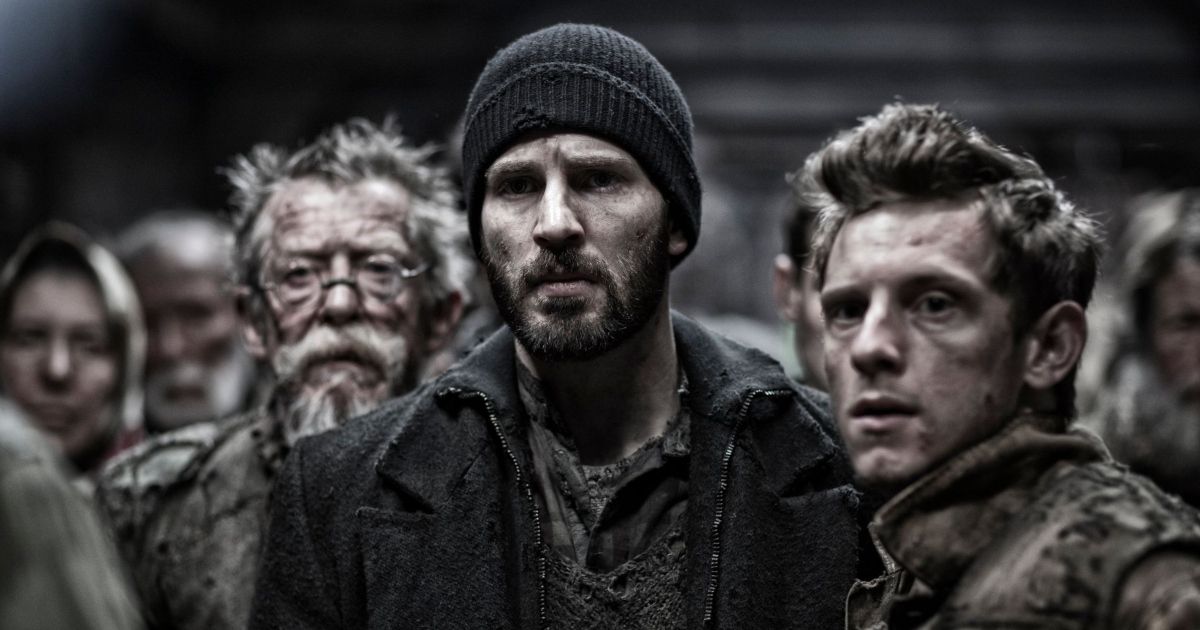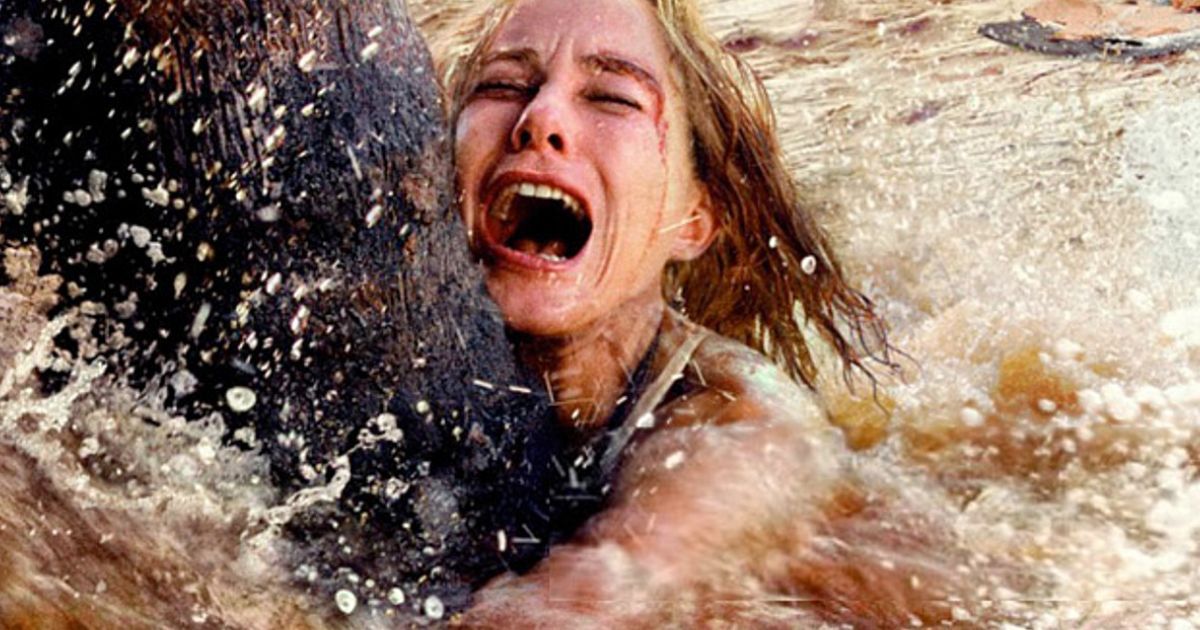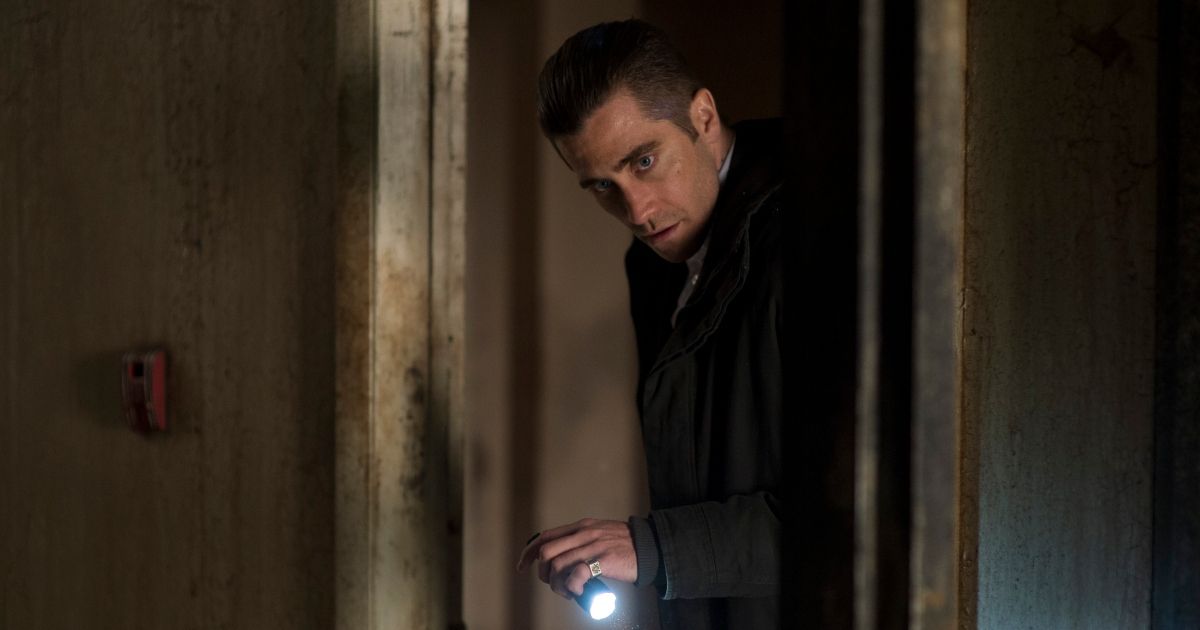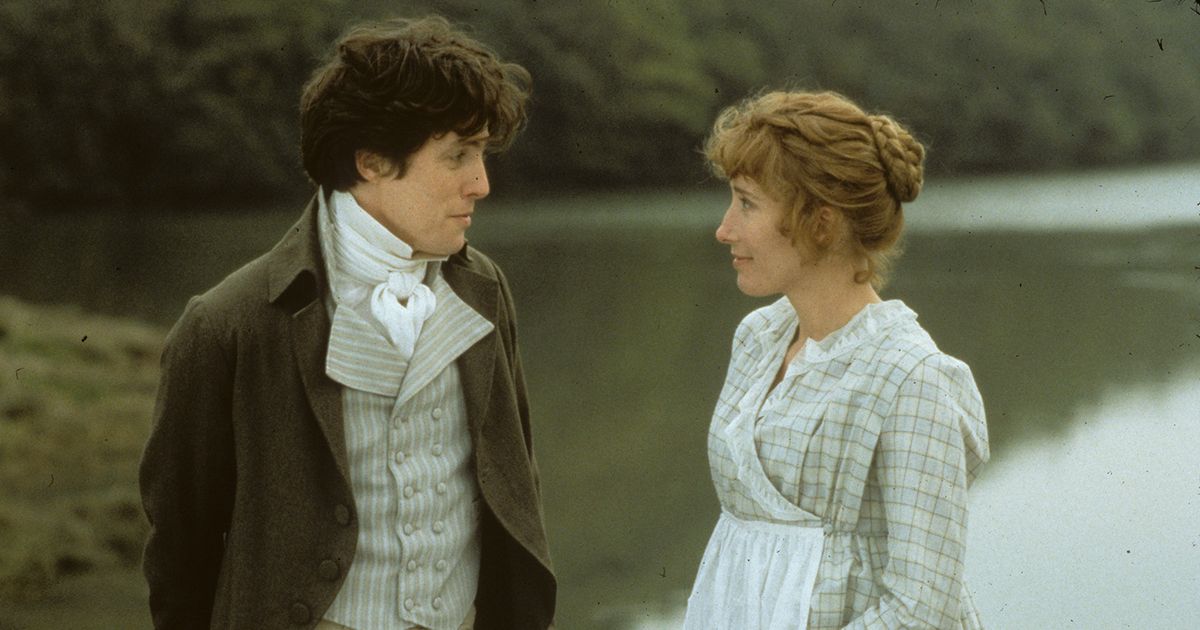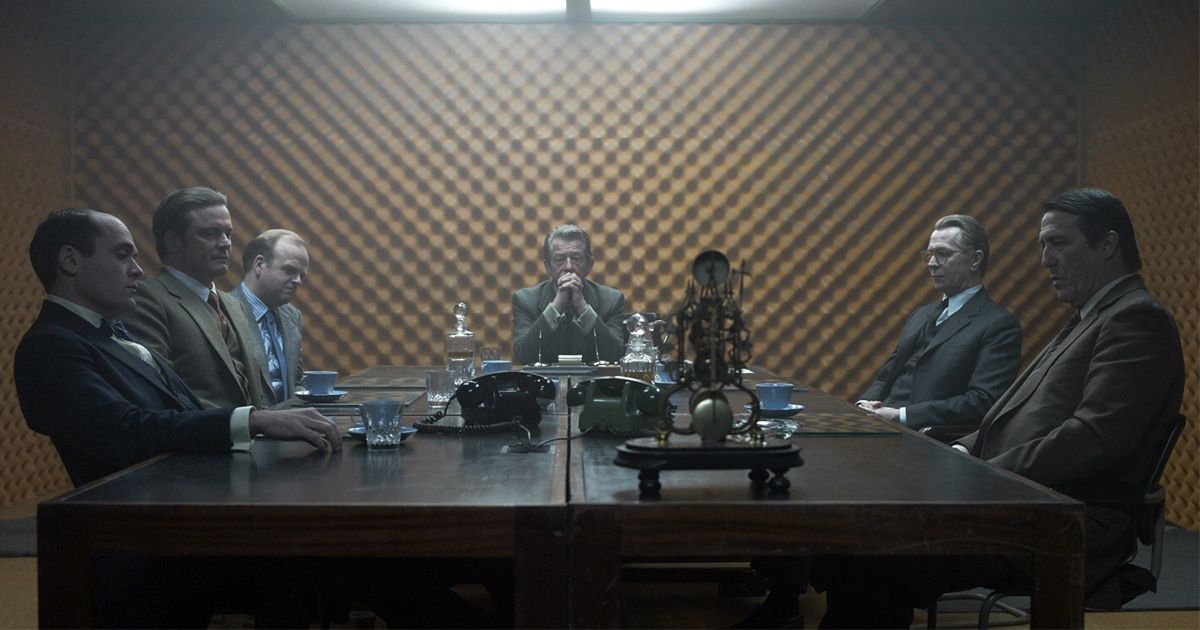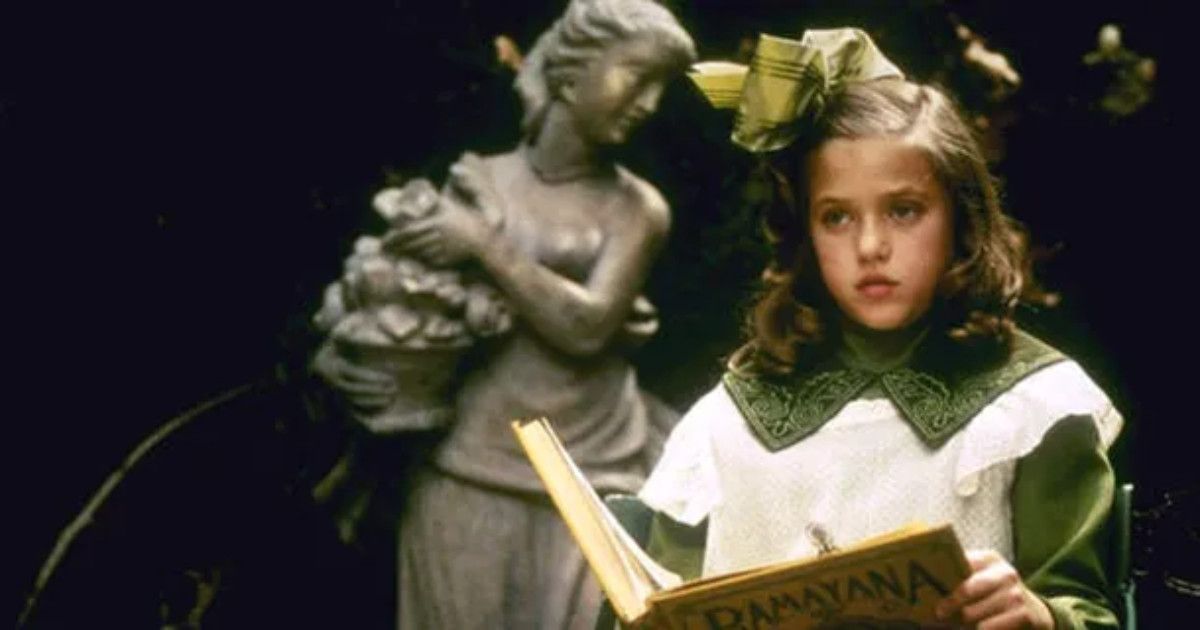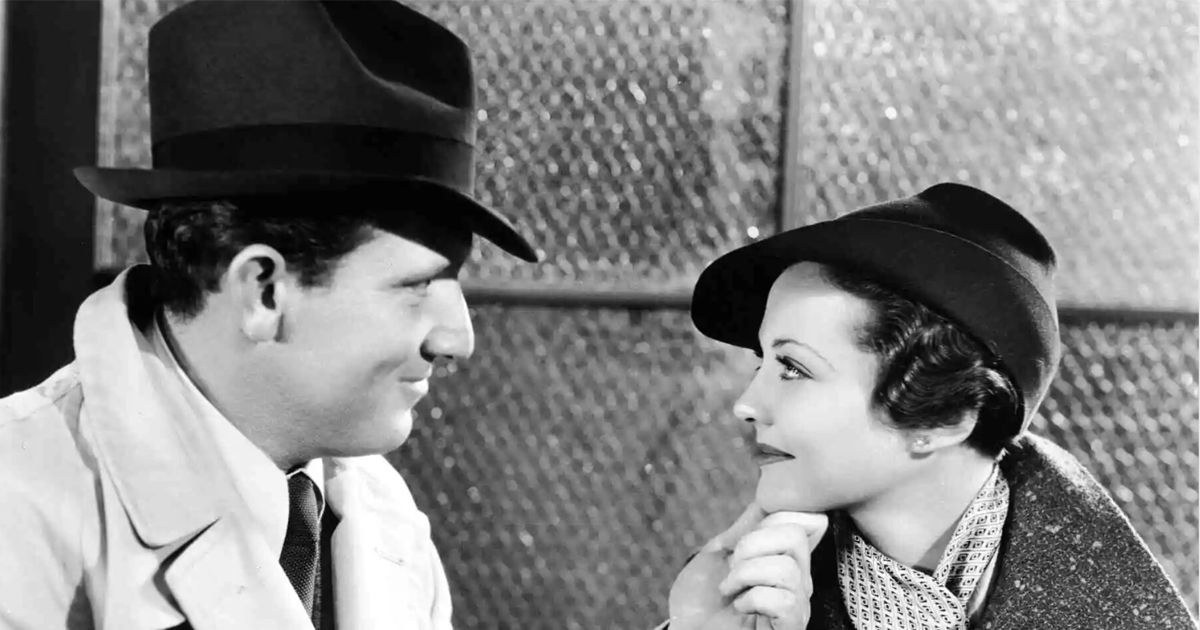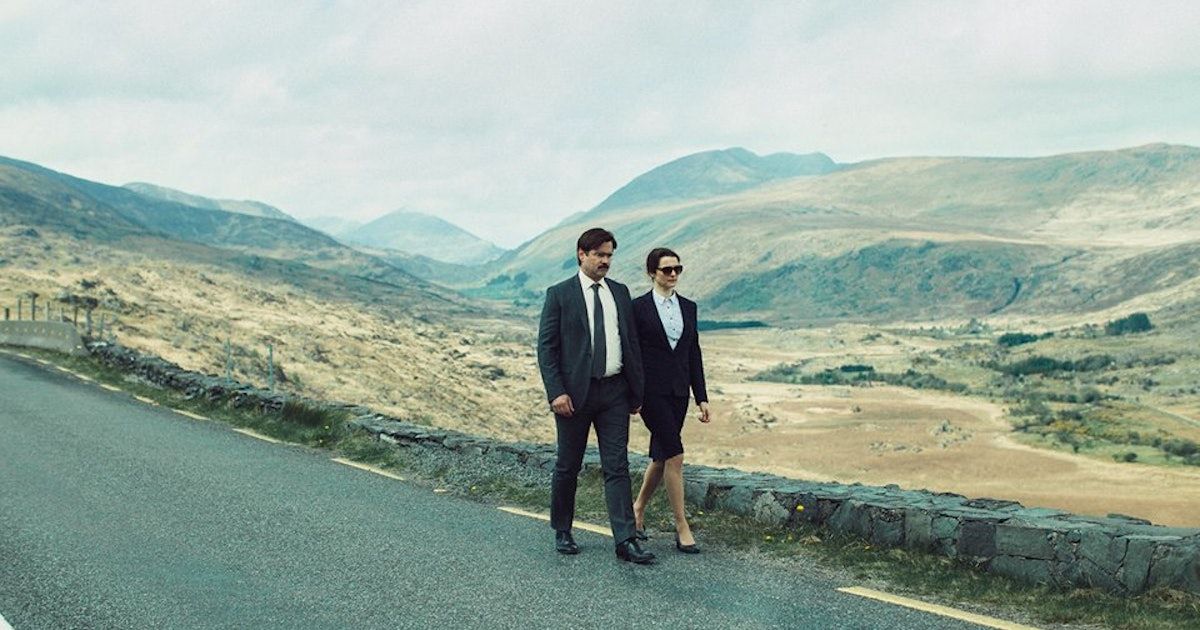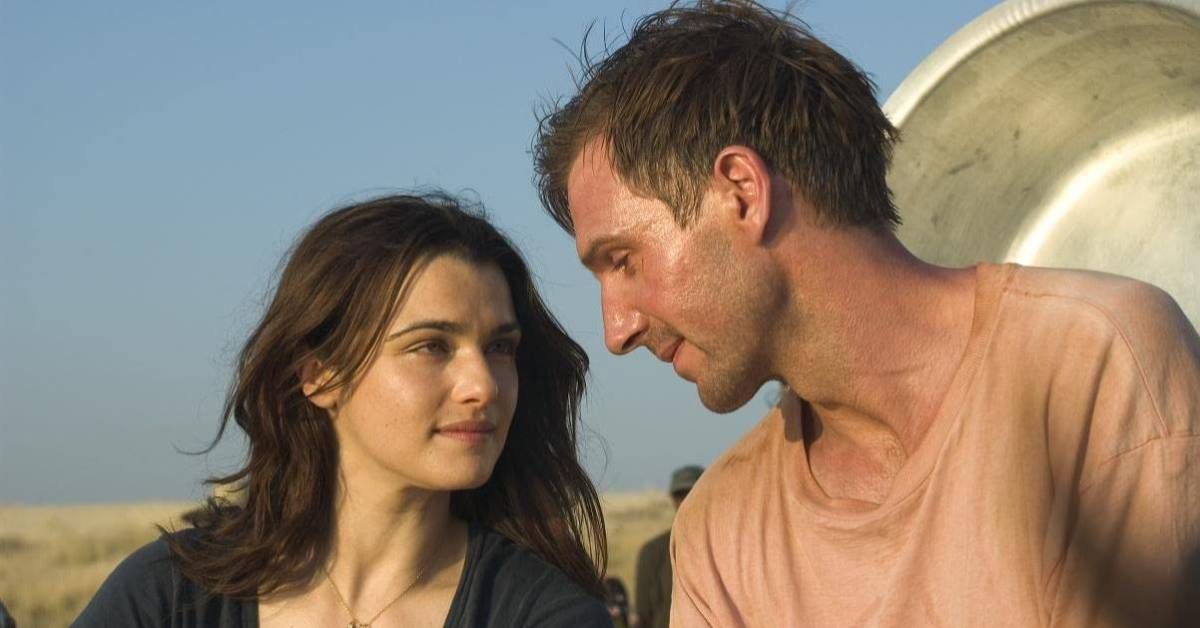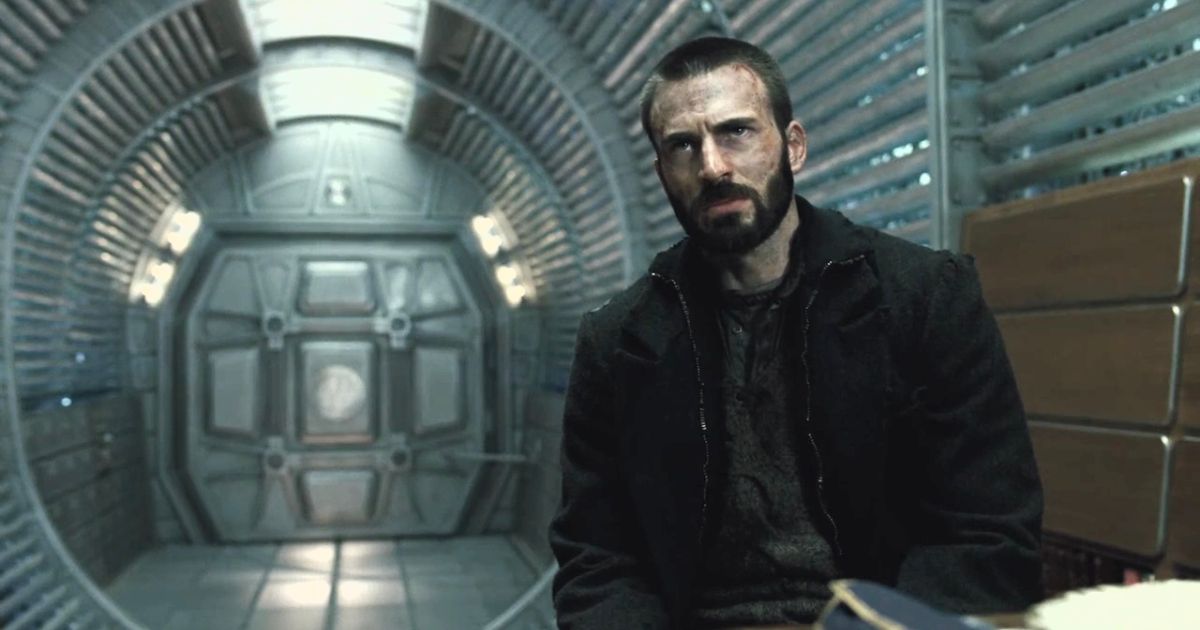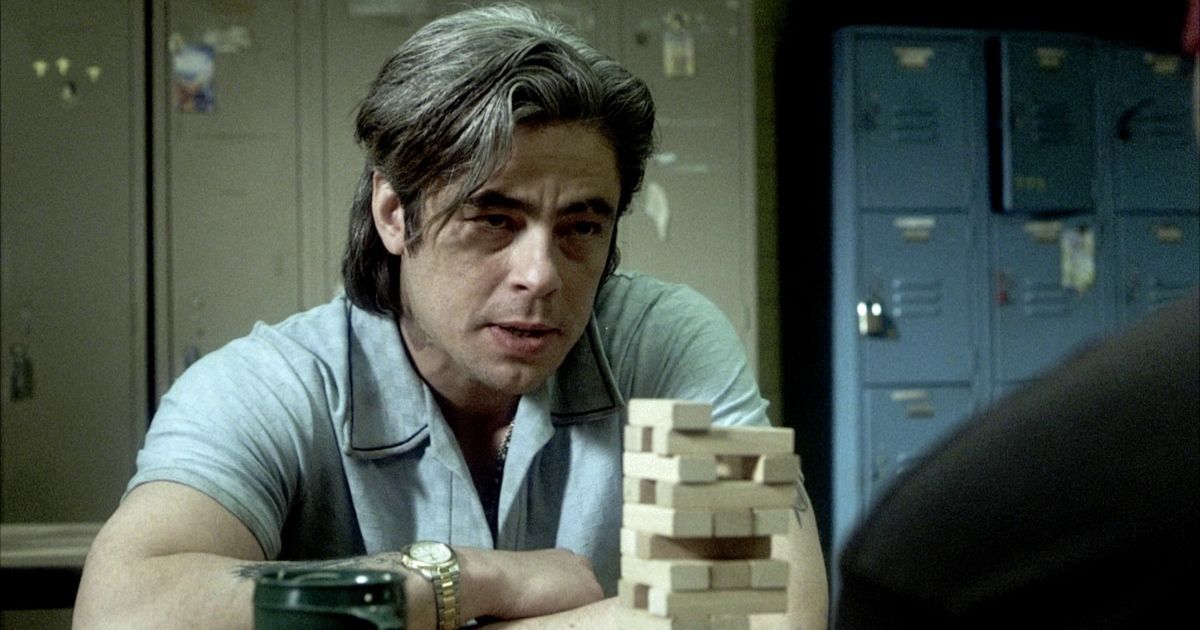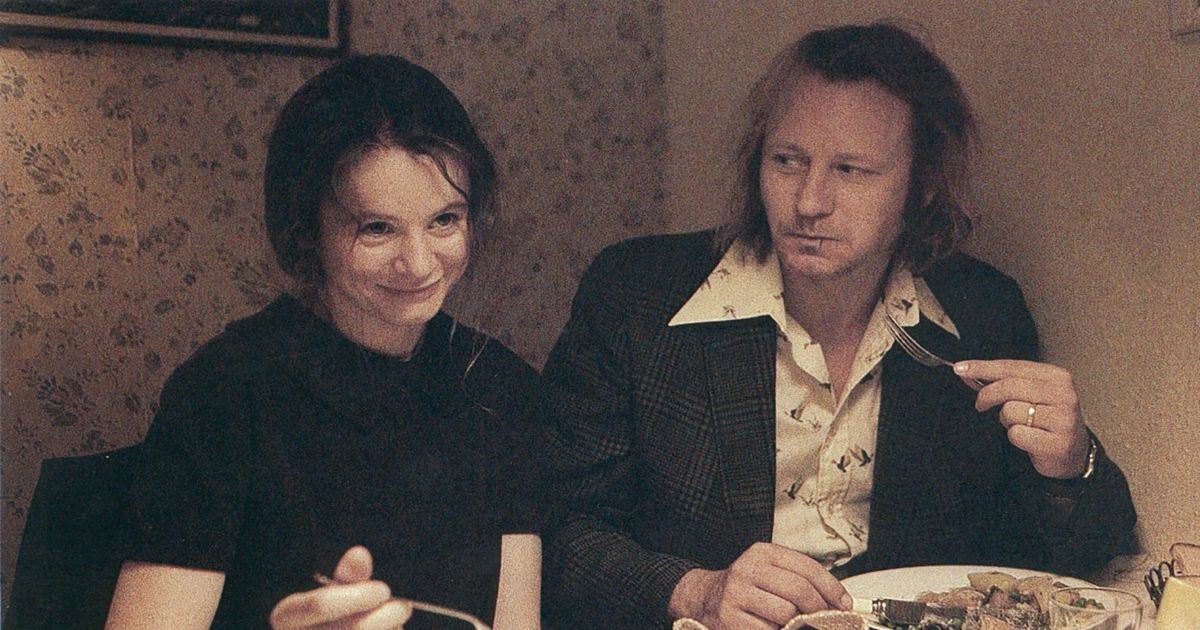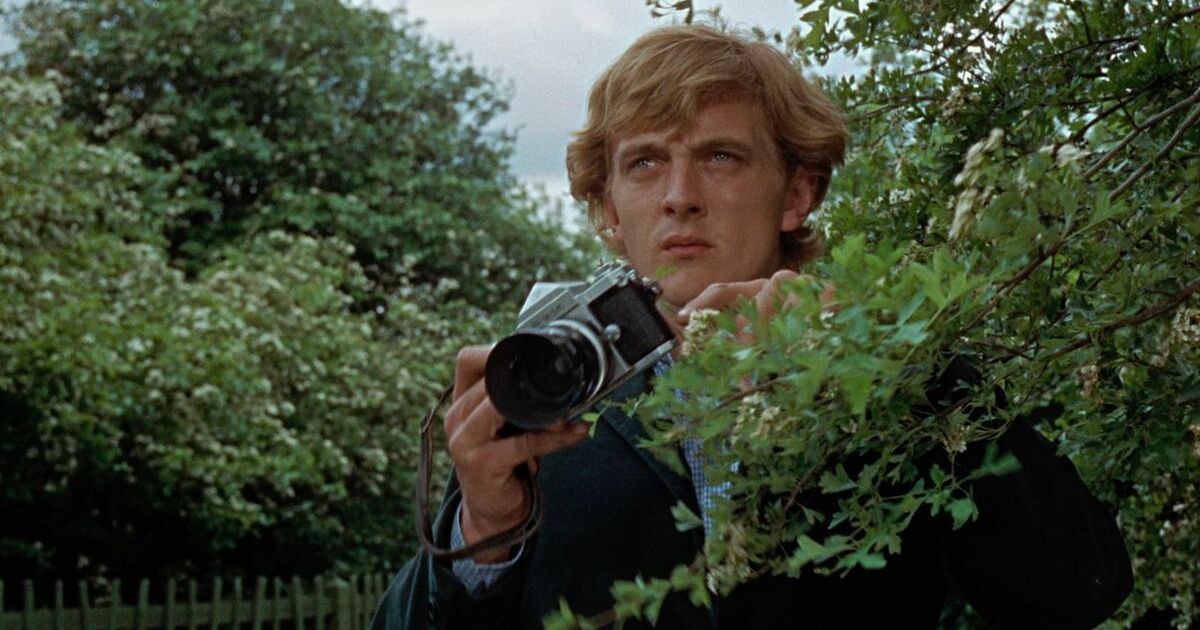If you can't tell from Hollywood's addiction to English-language remakes, English is an important language in the film industry. No, not that written stuff at the bottom of the screen in a foreign film (they're called subtitles, guys!), but good ol' spoken 'American.' For better or worse, Earth's most widely spoken tongue is the language of global entertainment; not only does it open a lucrative international market, it brings together creative talents from around the world.
That said, even for the greatest of international directors, transitioning into English isn't always easy. Take Wong Kar-Wai's My Blueberry Nights, which was criticized as a poor translation of the filmmaker's talents. There's also renowned Austrian director Michael Haneke, whose English debut was a shot-for-shot remake of his own horror classic, Funny Games. Some respected the message he was trying to send to American audiences, while others found it a pointless indulgence. Roman Polanski, on the other hand, made a convincing (and horrifying) move into English-language film with Repulsion, though the film now takes on uncomfortable undertones in light of the director's troubling reputation.
Some directors remain successful despite never making the shift into English-language movies, though the alluring roster of talent that comes with English-language entertainment will inevitably come calling. Though acclaimed director Pedro Almodóvar has been extremely successful while sticking to his native Spanish, he's now making his first English film, A Manual for Cleaning Women, with Cate Blanchett at the helm. The star power and clout of the American film industry supply a wealth of resources and actors that is hard to turn down. Here are eight English-language debuts from international directors that made the most of these new riches and struck gold.
Update September 21, 2023: Are you wondering what other international directors had great English-language debuts? Then you'll be happy to know this article has been updated with additional films and directors by Rafa Boladeras.
13 Mimic - Guillermo Del Toro
Mexican director Guillermo del Toro has always marched to his own drum, and that has made for a unique career. That was already there in his first English film Mimic, a horror, sci-film that was much better than it had any right to be. This is the story of entomologist Dr. Susan Tyler (Mira Sorvino) who creates a genetically engineered insect to kill cockroaches that are carrying a disease killing Manhattan kids. Three years later, those same insects have evolved into something much worse, and they now want to kill humans, as they can even mimic them.
Del Toro is a master of the disgusting, and this film has disgusting in spades, even if the director had some problems with producers Harvey and Bob Weinstein. The film is scary, with some hunting images and a great performance by Sorvino, while it’s also fun to see a young Josh Brolin and Norman Reedus in the movie. Del Toro has made many better films than this one, but you could already see some of his passions here, from his love for the scary and macabre to his imagination in creating unique, weird creatures, making for a good first effort in English.
12 The Impossible - J.A. Bayona
Spanish filmmaker J.A. Bayona became an overnight sensation after his directing debut was the horror movie The Orphanage. All eyes were on the director and what would he do next, as it was not only in the English language but with a much bigger budget and more known actors. In The Impossible, he decided to tell the real-life story of the Bennet family, Henry (Ewan McGregor), Maria (Naomi Watts), and their three kids Lucas (Tom Holland in one of his first films ever, and many years before he became Spider-Man), Thomas (Samuel Joslin), and Simon (Oaklee Pendergrast), as they get separated when an incredible big tsunami hits the region where they were on Holidays.
Bayona’s mastery of how to create tension and horror works perfectly in this story, as these parents are having their worst nightmare ever, making for scenes where, although there’s no ghost or serial killer, things get much scarier, as they might not be able to found their kids, or even worse, they might be dead. The story gets a bit melodramatic at times, but it’s directed so well that at the end, you only want to call your parents and, or kids and tell them you love them.
11 Prisoners - Denis Villeneuve
Canadian Denis Villeneuve started out directing French-language films like Maelström and Polytechnique. Buzz was growing for the director, especially after his knockout drama Incendies, and he had earned a reputation for visual mastery and imaginative storytelling. His Hollywood debut, Prisoners, built on this reputation, shocking audiences with a tense, genre-melding thriller that meticulously combined artful cinematography, impeccable acting, and perfectly calibrated tension.
The stacked ensemble cast, including Jake Gyllenhaal and Hugh Jackman, cranked up the emotional impact of the film, which centered on two families left reeling after the disappearance of their daughters. Villeneuve has gone on to become one of the most accomplished directors of his generation, with Blade Runner 2049 and Arrival affirming this status. He continues to ride high on the success of his latest hit, Dune, picking up a slew of Academy Award nominations for the sci-fi epic at the 2022 Oscars.
10 Sense and Sensibility - Ang Lee
Sense and Sensibility was the film that allowed Taiwanese master director Ang Lee to assert himself in the English language and gain a truly international reach. An adaptation of a classic Jane Austen novel, this 1995 film follows three sisters and their suitors. Your heart will be warm (and its strings completely worn out) by the end. Lee's earlier films, Eat Drink Man Woman and The Wedding Banquet, were also romantic comedy dramas with themes of family at their core.
Here, Lee approaches the source material with his warm touch, well-developed characters, and sweeping visuals. Written by and starring Emma Thompson as Elinor, it is widely considered one of the best Austen adaptations. Its thoughtful conception of female characters and emotionally rich, nuanced portrayal of romance stand the test of time. It's hard not to cry happy tears along with Elinor when Edward (Hugh Grant) finally proposes. Lee would go on to back up this English-language achievement with classics like Brokeback Mountain and the stunning Life of Pi, both of which won him a Best Director Oscar.
9 Tinker, Tailor, Soldier, Spy - Tomas Alfredson
Swedish director Tomas Alfredson made an incredible, small, intimate vampire film with Let Me In, so much so that Hollywood did an English remake of it. After that, he got the chance to do something bigger, so when the director decided to tackle a John Le Carré novel in an English-language film, people were more than interested, and Tinker, Tailor, Soldier, Spy delivered.
The film is all about semi-retired spy George Smiley (Gary Oldman), who must discover a mole in British Intelligence giving information to the Soviets. As with any Le Carré story, there are many twists and turns, and Oldman holds the audience’s attention closely, even if the plot can sometimes escape them. Alfredson has a great cast to play with, not only his leading man but also Benedict Cumberbatch, Tom Hardy, John Hurt, Mark Strong, Colin Firth, and Toby Jones. The director also knows how to create tension in every frame, and he’s a master of creating a unique mood that surrounds the whole film, making for a spy film that might have more in common with The Conversation than with James Bond.
8 A Little Princess - Alfonso Cuarón
Alfonso Cuarón's first English-language film demonstrates his keen talent for communicating points of view. The way his subjects see the world shapes the work of the award-winning Mexican director, be they little girls, teenage wizards, or adults living in a dystopia. Cuarón is a member of the talented "three amigos" group of Mexican directors who have taken the film industry (and the Oscars) by storm in recent years. A Little Princess was praised for its cinematography, thanks to Cuarón's frequent collaborator, the prolific Emmanuel Lubezki (arguably the "fourth amigo").
A loose adaptation of the novel by Frances Hodgson Burnett, the movie follows Sara, a girl who is sent to boarding school after her father leaves to fight in World War I. After he's presumed dead, Sara is tormented by the cruel Miss Minchin and is forced to use her imagination to overcome her circumstances. Cuarón still reflects fondly on the film, and there's no question that it helped his career soar to new heights. His English-language filmography grew impressively after the picture, with English-language box office successes like The Prisoner of Azkaban, Children of Men, and Gravity cementing him as one of the most talented working directors.
7 Fury - Fritz Lang
Fritz Lang started his career in Germany, where he became one of its best filmmakers after directing masterpieces like Metropolis, or M. The problem he had was that his next film, The Testament of Dr. Mabuse was seen as problematic by the Nazi Party, who had just arrived in power, as the character might’ve had some inspiration in Adolf Hitler. That film was all about a criminal mastermind and hypnotist and was banned in Germany, but even then, Lang was offered a place on the German propagandistic team.
The director decided to leave Germany and went to America to continue his career, with Fury being his first film here. The movie, with a great Spencer Tracy, is all about mob mentality and how they almost lynched Joe Wilson (Tracy) before a trial is had after he survives. The movie might be as unique, formal, and adventurous as his films in Europe while tackling a subject as uncomfortable and prescient (back then, but unfortunately also now) about those who get personal gain by promoting hate and violence against someone else.
6 The Lobster - Yorgos Lanthimos
Greek director Yorgos Lanthimos was already 'a favorite' for his original, darkly comic dramas like Attenberg, Alps, and Dogtooth. But it was The Lobster, his first English movie, that truly catapulted Lanthimos into the spotlight. He makes use of the same matter-of-fact violence and deadpan dialogue that characterizes his Greek work, plus a portly Colin Farrell as protagonist David. The film is set at a wilderness retreat where David is told that he has 45 days to find a partner before he is turned into an animal of his choice.
Rebellious loners terrorize the outskirts of the forest, and the retreat encourages the participants to hunt as many of them as they can to win extra time. Lanthimos seems fascinated with exploring the strange confines of interpersonal relationships, creating rules and quirks within his singular films that shine a light on human nature. The Lobster is disturbing, funny, and clever all at once. Lanthimos will continue building on the success of his subsequent English films with his next project, Poor Things, which is a play on the classic Frankenstein story.
5 The Constant Gardener - Fernando Meirelles
Although he had been directing in Brazil for a while, Fernando Meirelles made an international name for himself when he directed City of God, which was nominated for four Academy Awards even though the film was in Portuguese. For his next film and his first in English, Meirelles tackled a story by John Le Carré, The Constant Gardener. This is the story of a humble, make-no-fuss diplomat, Justin Quayle (Ralph Fiennes), stationed in Kenya, who, once his wife Vanessa (Rachel Weisz) is found dead, starts investigating and discovering a worldwide conspiracy that, as always, is making the rich richer and the poor poorer.
Fiennes gives an excellent performance, as his character finds a new gear and motivation to discover what really happened to his wife while also being hunted by grief, love, and confusion, as the official story is that she was killed in a crime of passion with another man. The chemistry between the actor and Weisz in flashbacks makes the story much more believable as you understand why this character will go to the ends of the world to uncover the truth. Meirelles proved his mastery of the camera to shoot thrilling, stressful action scenes while also showing the character’s increasing paranoia, making for a great film.
4 Snowpiercer - Bong Joon-ho
Now one of the world's most respected directors, Bong Joon-ho went from making well-respected Korean language films like The Host and Memories of Murder to producing an English-language hit with Snowpiercer. Adapted from a French graphic novel, Snowpiercer is an imaginative action film set on a train traversing a dystopian ice world.
As the hierarchies and senseless inequalities of the world manifest in the train's hellish inner workings, Curtis Everett (Chris Evans) works his way from the back to the front, leading a proletarian revolt one car at a time. Starring Tilda Swinton, Jamie Bell, and Song Kang-ho, the film bridged Bong's filmmaking prowess from Korea to North America and Europe. His favorite themes of capitalism and his trademark fusion of dark themes and humor worked just as well abroad. The movie has gone on to spawn a successful American TV series of the same name.
3 21 Grams - Alejandro Iñárritu
Another member of the Mexican power trio "the three amigos," Alejandro Iñárritu, burst onto the scene with Amores Perros, a film that centers on three distinct stories brought together by a car accident; his English-language debut, 21 Grams, was part of the same "trilogy of death." It takes place in Memphis and centers on another fatal car accident, following the lives of the people involved in a perspective-shifting, time-jumbled narrative.
As the movie progresses, some scenes resurface from the point of view of different characters. Starring Naomi Watts, Sean Penn, and Benicio del Toro, the painful tangle of lives and emotions manifests with a gut punch, particularly thanks to Watts, who plays a bereft mother who has lost her family in the accident. Moving and brutally insightful into human relationships, Iñáritu's English debut kept him true to form as an incredibly talented director, no matter the language. Given this strong start, his later success with Birdman and The Revenant was no surprise.
2 Breaking the Waves - Lars von Trier
Most famous for his boundary-pushing, controversial films, Lars von Trier has never been one to play by the rules. His films often explore difficult material like mental health (in Melancholia) or sex addiction, leaving viewers with a pit in their stomachs. Breaking the Waves, the first film in his "Golden Heart" trilogy, was the first fully English language feature from the Danish arthouse master.
Emily Watson plays Bess, a naive but kind woman who marries an oil rig worker named Jan, who comes from outside her small, extremely religious Scottish community. When he is paralyzed in an accident, Jan makes a painful request to Bess: she must make love to others in his place. In a difficult, powerful exploration of faith in the most barren of places, Von Trier expands the definition of what that word even means. The film was a strong debut for Emily Watson, too, who earned an Oscar nomination for her performance. Von Trier is clearly fluent in the emotional language of cinema, no matter what language his actors are speaking.
1 Blow-Up - Michelangelo Antonioni
Michelangelo Antonioni was one of the 20th century's greatest directors. His British arthouse thriller Blow-Up, came after years of success in Italian filmmaking, with his films like L'avventura, La Notte, and L'eclisse becoming pillars of cinema. Riding on all of this success, it's impressive that his English-language debut still holds up as one of the defining films of the '60s. He would later go on to direct other classics in English like Zabriskie Point and The Passenger with Jack Nicholson, but Blow-Up would remain one of his most famous and influential works.
Here, he assembles all the ingredients to a suspenseful crime thriller — a murder, a witness, a piece of evidence — then uses his talents to throw these elements promptly into question. A complacent London fashion photographer (David Hemmings) thinks he might have seen a murder in the park, but the mystery fades into obscurity before it even gets going. Mystifying until the final shot, nothing is quite as it seems in this classic, which Antonioni described to Roger Ebert in 1969 as being “not about a murder but about a photographer.”

